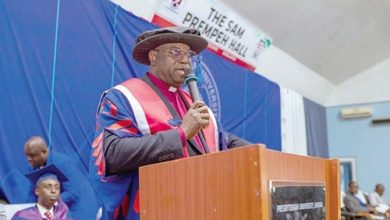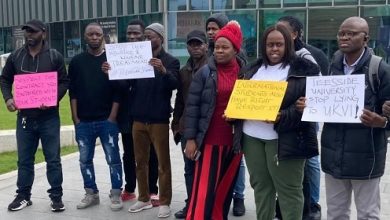Let’s balance free speech with rule of law
Abtvgh / Rule of Law In Ghana
Recent public comments on the trial of the Member of Parliament (MP) for Assin North, James Gyakye Quayson, have received support and backlash from different quarters and the general public.
The brouhaha started when the Dormaahene, Osagyefo Oseadeeyo Agyemang Badu II, made an appeal to the Attorney-General (A-G) to file a nolle prosequi and discontinue the criminal case against Mr Quayson, as prosecuting him would not augur well for his constituents, especially after his victory at the Assin North by-election on June 17, this year.
A former A-G, Nii Ayikoi Otoo, also added his voice to the calls for the discontinuance of the case on the basis that it would be politically prudent for the trial to end in view of current public sentiments.
Mr Quayson has been accused of perjury and forgery over certain alleged offences in the run-up to the 2020 general election.
He won that election but it was later nullified by the Supreme Court due to his dual citizenship status.
The Dormaahene’s appeal for the A-G to drop the case against the legislator was condemned by some who saw it as an unwelcome comment by a sitting judge.
Osagyefo Agyemang Badu is a High Court judge with the name Justice Daniel Mensah.
While his critics hounded him, those in support of the comment spiritedly defended the Dormaahene, arguing that he only exercised his freedom of speech and also it was in the public interest to end the case against the Assin North MP.
It is obvious that the public commentary on the trial has taken the usual political dimension, with people sticking to entrenched positions on the issue.
The opposition National Democratic Congress has jumped to the defence of the Dormahene, while many of the critics are affiliated to the ruling New Patriotic Party (NPP).
It was within the context of such a polarised political environment on the issue that the A-G, Godfred Yeboah Dame, released a statement calling on the public to be circumspect in their commentary on court cases especially the so-called high-profile cases, involving political figures.
Mr. Dame said although there was the freedom of speech, such commentary on the cases “transgresses permissible limits of free speech” and makes it difficult for the “stream of justice to flow”.
He noted that any assertion that a person should not face the law because of his or her political position would not augur well for the development of the country, and as such dangerous for democracy.
“The perception that a crime committed by a person of high political standing in society should not be prosecuted is dangerous for society and must not be countenanced,” Mr Dame said.
The A-G added that such public utterances, including those by lawyers, were prejudicial and had the potential to mar the effective administration of justice.
The Principal Legal Advisor to the government said such comments did not provide a conducive environment for state prosecutors and the court to effectively discharge their functions.
Public comments on state institutions, including the work of the A-G and the judiciary, are a testament that our democracy is growing and people are becoming more conscious of public issues.
In this regard, it is, therefore, not out of place when people comment on court cases.
However, the Daily Graphic agrees with the A-G that the nature of some of the commentaries on court cases may have a negative impact on the administration of justice.
Constant non-constructive criticisms of court cases could lead to bastardisation of the courts, and the justice system, and could create the impression that the justice delivery architecture was against the public will.
Loss of confidence in the justice system could spell doom for the country.
We, therefore, call on the public, including political office holders, to be circumspect in their commentaries on court cases, especially high-profile cases in order not to pit the citizenry against the justice system.
While an accused person must be given the freedom to defend himself or herself, the justice system must also be given the space and necessary support to adequately discharge its duties.
We must cherish our right to speak on issues but we must balance that right with the rule of law in the interest of the country.



